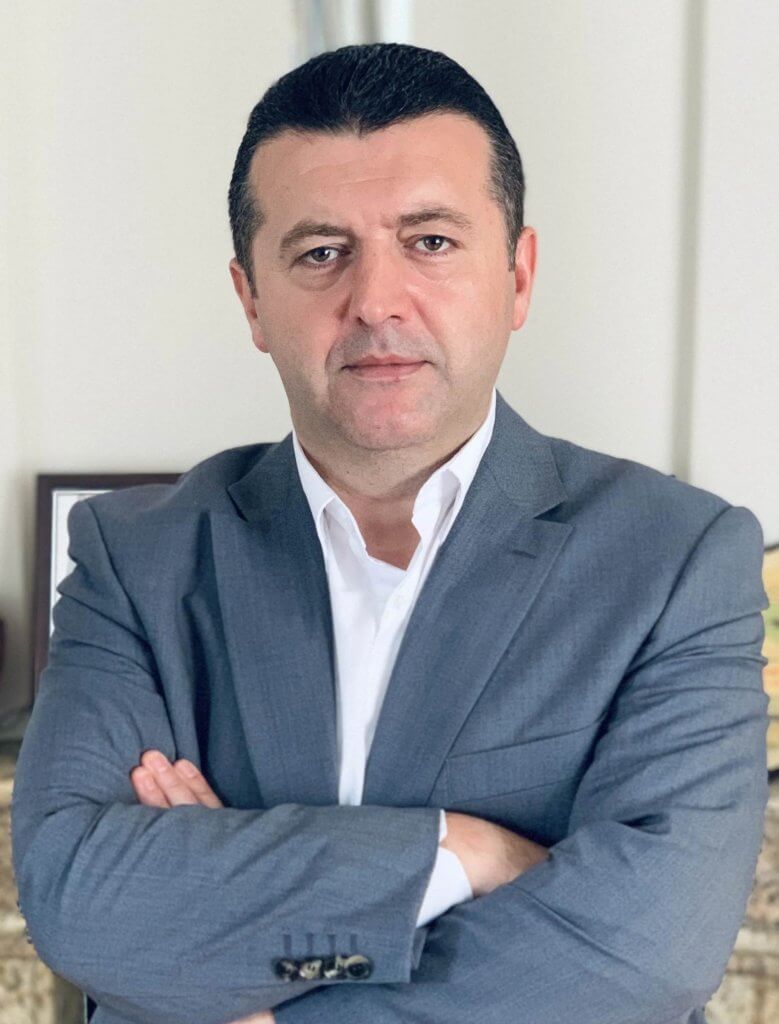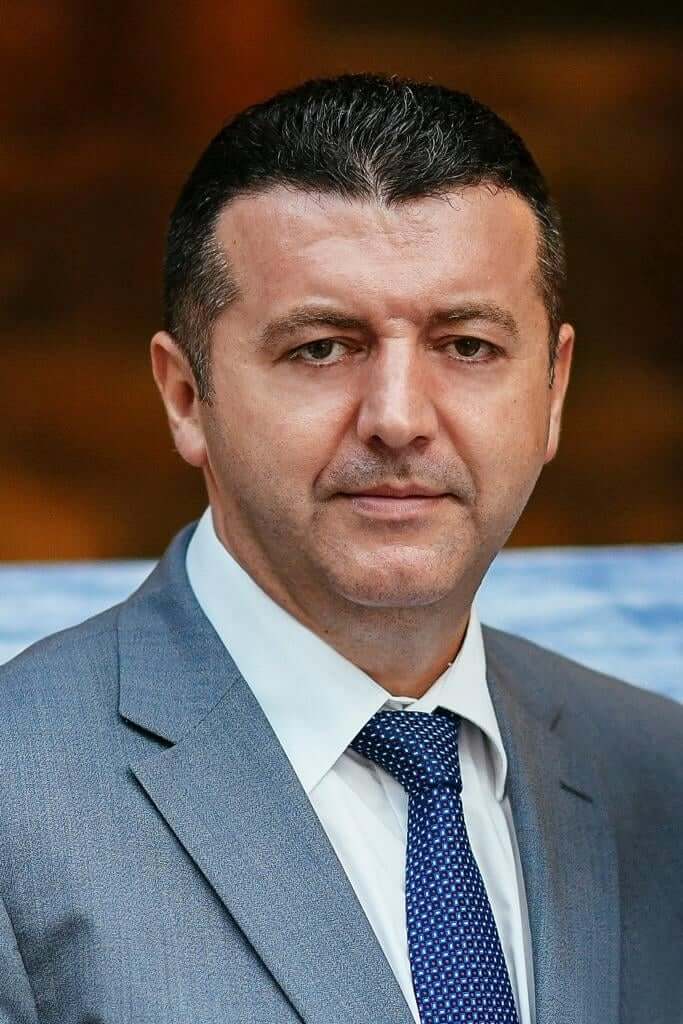RUSSIA WANTS, AND IS WORKING ON – AN EXPLOSION IN KOSOVO AND BIH!
The latest escalation in the north of Kosovo, as well as the latest complication of political relations in Bosnia and Herzegovina, after last month’s signs of stabilisation and positive steps in the implementation of the results of the general elections from October 2, impose the need for a broader view in the context of security, geopolitical relations and external malignant influences.
On this occasion, Dr Orhan Dragaš, an expert on security and international relations from Belgrade, and the founder and director of the non-governmental International Security Institute speaks for the portal Radiosarajevo.ba. He received his university education in Belgrade, doctorate in Brussels, and his postdoctoral training in London, at the American Yale, Oxford, Harvard and other universities and centres of knowledge.
Among other things, he is an expert of the European Commission for migration and internal affairs and a member of Chatham House from London. He founded the Faculty of Diplomacy and Security in Belgrade, the first of its kind in Eastern Europe. Author of numerous expert articles and books.
What does Russia want?
Respected Dr Dragaš, how do you assess the situation in the region? These days, Russian RIA Novosti, in their assessments of the events in 2023, have been talking about the fact that “the explosion is possible in Kosovo and Bosnia and Herzegovina”!
Russia would certainly like that. And not only that, it works hard to make something like that happen, invests money in it, hires people, conducts strong and extensive propaganda in that direction. We must always keep in mind that the Western Balkans is the only remaining non-integrated area in the EU. Our region is the only one that the EU sees in its membership sooner or later in order to complete its expansion. Moscow knows that, and its effort not to integrate the Balkans did not start with the aggression against Ukraine, but much earlier, and that effort has been intensified now. For the most part, despite everything, several important positive things have been happening in the region. The aggression against Ukraine slightly accelerated our movement towards European and Atlantic integration. We must bear in mind that in just six months, Albania and North Macedonia finally opened negotiations with the EU, and in December the candidate status for Bosnia and Herzegovina was confirmed. These are important developments and indicate that Brussels has finally realised that they have to be much more active towards the Balkans. But crises are still present throughout the region. You mentioned Kosovo and Bosnia and Herzegovina, I would also add Montenegro as a major focal point of regional instability. Due to the incomprehensible behaviour of that new majority in the last two years, and the even more incomprehensible tolerance of the West towards an incompetent and essentially anti-European government, Montenegro slipped from the level of the best European example in the region to a state where the majority carries out a constitutional coup. I hope that in Podgorica they hit all the walls they could and that in some upcoming elections they will return to the European course and the behaviour that befits a NATO member.

To what extent can the situation in the Balkans, in Kosovo, and increasingly in Bosnia and Herzegovina, be linked to the actions of Russia, its hybrid warfare and “stretching” in the context of the Ukrainian war? These days Moscow “gave support to Belgrade” in the context of events in Kosovo, and then focused on BiH, where the Russian ambassador to Serbia, Botsan Kharchenko, said in a threatening manner that BiH’s membership in the EU is “dangerous”! As they threatened before, if this country goes in the direction of the NATO Alliance!?
I have been speaking and writing for a very long time and persistently about Russia’s destructive influence in the Balkans, including Serbia, of course. Long before the aggression against Ukraine. Simply, Russia never had any plan “for” the Balkans. It has no idea what it wants with the Balkans in the future. Its idea and action are “against” the Balkans, it wants to prevent the aspiration of everyone in the Balkans to join the EU, and particularly to join NATO, from coming true. If there is one “pro” in Russian policy towards the region, it is that the region will permanently remain full of unresolved conflicts, hotspots that can be activated at any moment into bloodshed, that it will permanently remain deeply corrupt, economically underdeveloped, far from the rule of law and technological and development “chains” of global exchange. It is not a Russian specialty only for the Balkans, it wants it for all other countries it considers part of its world – it wants the same for Ukraine, and when it opposed, brutal aggression followed. Russia wants the same for Armenia, Kazakhstan, and in the end it applies the same model at home, in Russia. It cannot adopt any other model, because it is a state based on corruption – both spiritual and material, a society that has never felt true freedom in history, whoever ruled it. That is why Russian destruction in the Balkans is persistent and dangerous, and the region can hardly resist it without the stronger support of Europe, to which the Balkans undoubtedly belong.
Does Serbia have room to distance itself from the “Russian world” that is pushing it into new Balkan conflicts, or is Serbia putting itself in the position of “Russia’s ally” as one British journalist wrote recently?
I entirely agree that the Russian influence in Serbia is very strong, to be more precise – the influence of Putin and his leadership in the last two decades. But I object when things are set in black and white, as commentators and politicians in the West are often inclined to do. The pro-Russian sentiment in Serbia, or anywhere in the Balkans, is not original, it is derived from the anti-Western sentiment that has been noticed here in the last 20-25 years. Never before that, neither in Serbia, nor in Bosnia and Herzegovina, nor in Montenegro, did you have a dominant feeling of affection towards Russia or the Soviet Union. On the contrary, our culture, on which we grew up and gained an image of the world, is Western. I am therefore convinced that the break of Putin’s aggressive policy, which will happen in Ukraine, will mark the end of that artificial Russophilism, which actually has nothing to do with Russia, but with its autocratic leader. As for Serbia, neither I nor many people feel comfortable when we hear that we live in the only European country that has not imposed sanctions on Moscow. But on the other hand, it must be borne in mind that in all important international decisions, Serbia condemned Russian aggression and demanded the withdrawal of its army from Ukraine. At the same time, Serbia has supported Ukraine’s integrity, including Crimea, since the beginning of the crisis. It is official policy and these things are often forgotten.

These days, a poster appeared in Banja Luka with the inscription “Srpska is calling Serbia and Russia – together we are stronger”. To what extent is the latest radicalisation in Bosnia and Herzegovina by Milorad Dodik, above all, an activity at the expense of Russia’s stabilising role?
You recently had very similar protests at the crossings between Serbia and Kosovo, with identical messages, calling on Russia to liberate Kosovo, I guess, together with Serbia. Fully synchronised action from the same centre, equally far from Banja Luka and from the Jarinje crossing towards Kosovska Mitrovica. The idea is the same – we will try to create a crisis wherever possible, and if there is a crisis, then we will intensify it. Both Kosovo and Republika Srpska are the most sensitive points where Russian destruction can cause the greatest damage to the Balkans, and they encourage it. At the same time, keep in mind that those guys who called on Russia to come and return Kosovo to Serbia, are equally shouting at Vučić that he is a traitor and that he has sold out to the West. It is, in fact, the most honest and open message of what Moscow really thinks about Serbia, the one that is not heard at official meetings, while there were some. On the other hand, Dodik does not hide how close he is to Putin, he is proud of it and has no doubts about it. When you meet with Putin twice during the election campaign, the most isolated politician in the world who is condemned by almost everyone in the UN, then you are an ordinary subject of a state that is waging an aggressive war against its first neighbour. Milorad Dodik, along with Lukashenko, is Putin’s most faithful ally in Europe, and there is no doubt that this alliance will shape his every future policy and decision.
How wrong was the international community recently when it (also in the context of the formation of a new government in Bosnia and Herzegovina) believed that actors from the “black lists”, such as Dodik, could be part of the solution for stabilising the Balkans?
Absolutely wrong, in the good old tradition of the West making wrong conclusions when it comes to Balkan leaders and their policies. Moreover, I would not reject corruption as an important aspect that often stood behind wrong assessments and decisions. I am a big supporter of individual sanctions against international politicians based on the model of the Magnitsky Act, which Dodik and some other politicians in Bosnia and Herzegovina are exposed to. I am advocating the introduction of that law in Serbia as well, my Institute has also developed a model of that law, for which Bill Browder, the man who invented the Magnitsky Act, said was a “masterpiece”. It is a kind of “new technology” in international relations, and it was fully applied to the most influential Russians, including Putin, when they attacked Ukraine. It is the most effective and civilised way for the democratic world to oppose arrogant autocrats, because such sanctions only hurt them.
Should we really be afraid of the “explosion” that the Russian media has been talking about and in which direction do you see future security prospects in the Western Balkans?
We should not be in any paranoia, but we must be aware that one dangerous and aggressive factor, which is Russia, would give everything if something exploded somewhere in the Balkans, while it is tearing Ukraine and its people apart. At the same time, that factor does not sit and wait for something to happen, it works very persistently to make it happen. Imagine how much energy of Europe, NATO, America would be diverted from Ukraine to the Balkans, if a new confrontation took place in our country. It would be a gift from heaven for Putin. Not because he is interested in the Balkans, on the contrary. Ukraine is his main prey and obsession and anything that can serve his goals in Ukraine, he will go to great lengths to make it happen. It is my impression that the West assessed this risk well and that they have proven to be very effective several times in preventing catastrophe. First of all, I am thinking of the tensions in Kosovo in the last 4-5 months. Each of them could have exploded into a conflict, which Russia desired, but a very effective diplomatic reaction by the US, the EU and the UK followed, which stopped it. I think that the risk of an explosion in the Balkans is decreasing, at the same speed and intensity that Putin’s chances of success in Ukraine are decreasing. Those two things are directly related, and the Balkans would be peaceful only when the Russian invasion of Ukraine finally collapses, and I hope that will be soon.
